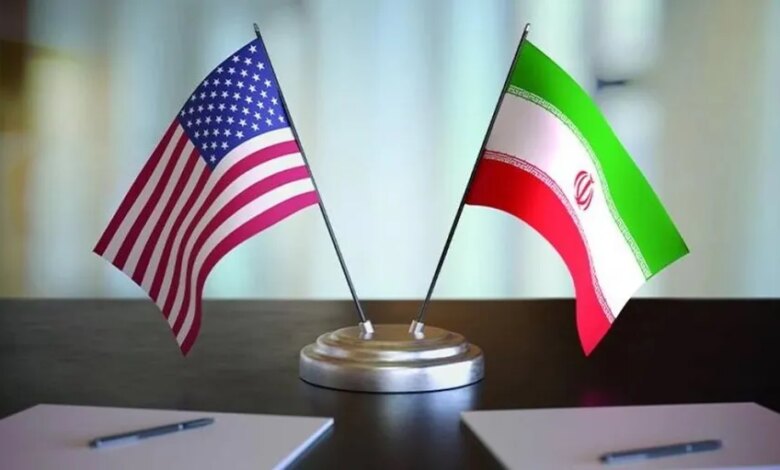Nuclear negotiations between Iran and the United States:


Despite the peaceful speech that the media in Iran and the United States in the current negotiations, what is happening behind the scenes has a completely different image. The three negotiation circuits that do not succeed in the removal of obstacles, and the postponement of the fourth round, reflects the clear stumbling block that is only difficult to overcome by diplomatic reports. This crisis is no longer associated with the Iranian nuclear program, but it has become a comprehensive war of regional influence, prevention rules and mutual confidence, which is difficult to pass easily.
In the midst of this scene, Israel plays the role of the most potential opponent of any potential contract, and is working hard to prevent any partnership between Iran and the United States. The prime minister of the Israeli government (Benjamin Netanyahu) did not cover its efforts to push the region towards a direct conflict with Iran, but also an excuse, despite the nuclear power capabilities under any international control. In previous statements, he did not hesitate to threaten the use of nuclear weapons against Iran from the United Nations base, before his office withdrawn these reports. However, the news has clearly reached the Iranian conclusive producer, which is considered to be protecting its military capabilities and is the main armor against any military adventure that the regional coalition network is launched by the United States.
For its part, Iran deliberately caution its nuclear file. It has technical skills that are qualified to develop a nuclear weapon, but avoid making a political decision in this regard. The Iranian vision depends on the idea of prevention by having the ability to implement in practice. However, Iran demands that Iran not be compelled to impact its strategic protection or to be forced to make privileges to weaken the documents of its regional authority, considering that it will not be accepted if no agreement is guaranteed balance and respect for its sovereignty.
In the details of the negotiations, the gap between the two parties is still standing. The US invites Iran to eliminate most of its nuclear nuclear program, stop indulgence, enter US researchers, reduce its missile capabilities, to free the cargo of enriched uranium, and to open the way to participate in their nuclear projects. As far as Iran is concerned, it demands the immediate and completely lifting of sanctions, the legal guarantees that prevent any US withdrawn in the future, compensation for losses caused by the Iranian economy, the prevention of military threats, the openness of multinational economic cooperation, and uniform international surveillance. Although the US has submitted some flexibility programs, such as the involvement of Western companies and converting the contract, Iran is very careful of any unwritten obligations based on the experience of US retreat from the previous contract.
The Arab countries, for their part, follow the advances of negotiations, with great caution, especially in the Gulf region. While some capitals see that ignoring Iran’s roles in disrupting regional stability, some capitals have seen that other countries such as Saudi Arabia have begun to open direct conversations with Iran, and that peaceful paths will lead to better results than continuous tensions. However, there are doubts in the objectives of Iran and the United States, leading to the pursuit of the parking policy of fear of Arab countries.
As far as sanctions are concerned, this has had a major impact on the Iranian interior, which has caused severe life crises, but not success in changing Iran’s political positions. Iran seeks the principle of “opposing the economy”, relying on its alliances with China and the Russian Union, and has been able to reduce the effects of the blockade through many alternative ways. However, the growing popular pressure puts the Iranian leadership in front of a real challenge, which is a need to violate political accounts for emergency social and economic demands to raise sanctions.
Other international players in this scene are less important. The Russian Federation considers Iran as an important component on the face of western domination. On the other hand, China considers Iran as a strategic economic partner within the structure of the belt and road initiative. In terms of Europe, especially in France, Germany and the United Kingdom, the US’s sanctions are more likely to be more than others, but its role is somewhat changed. Therefore, Iran is trying to ensure everyone through mutual visits and investment offers in an attempt to reproduce the opportunities for partnership instead of a party.
In the end, the essence of the negotiations is not limited to the technical aspects of the nuclear program, but rather a test of strengths, influence and sovereignty in a region that lives in the impact of crisis. The way for a final contract is still full of obstacles, but the political preference is available from all sides, and the legal guarantees that prevent the previous sloping situation from repeating the situation. The long -awaited period, the price of an impediment in the region, eagerly awaiting: the coming deal is the entrance to the real stability, or is it a temporary fight in the path of conflict?
